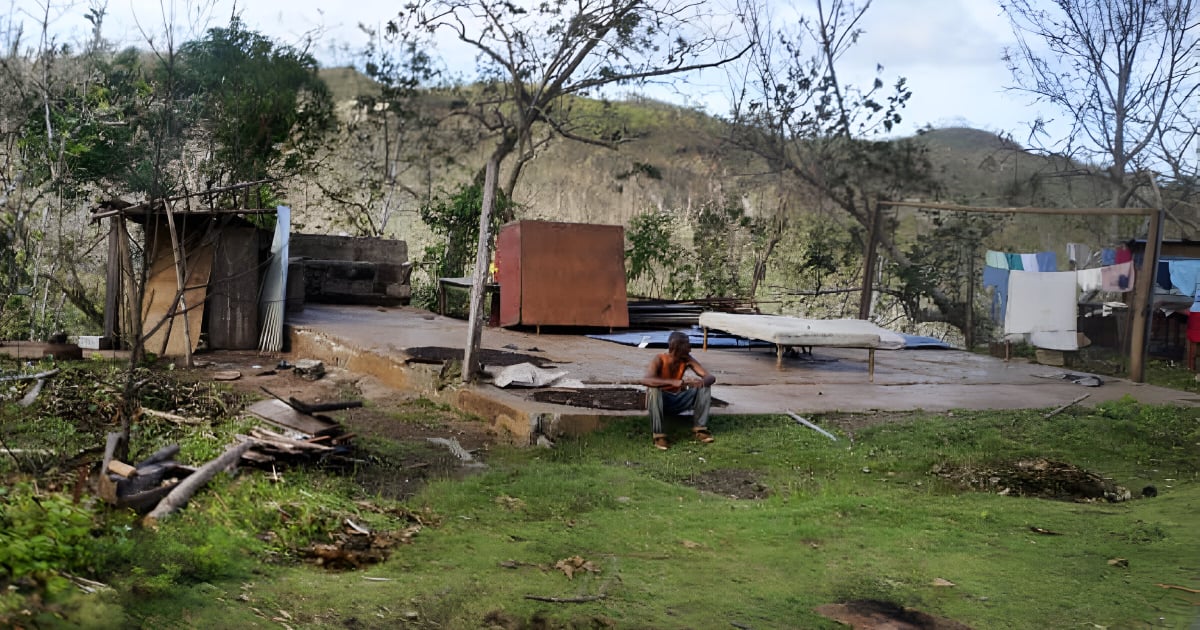In a recent update from Guantanamo province, authorities have reported that Hurricane Oscar left a trail of destruction, damaging more than 11,000 homes in its wake. This storm swept through the easternmost region of Cuba over a week ago, leaving significant damage behind. A preliminary report detailing the devastation caused by Oscar—during its more than 24-hour assault on Guantanamo—was presented by the Provincial Defense Council (PDC) in a meeting held in Baracoa. Cuba's leader, Miguel Díaz-Canel, along with several ministers, attended the meeting.
The official tally, as cited by the local newspaper Venceremos, indicates that a total of 11,402 homes were affected. Among these, 257 homes were completely destroyed, 360 partially collapsed, and 9,198 lost parts of their roofs. During a visit to the municipality of Imías, Díaz-Canel spoke to residents, warning them that the recovery of housing will be particularly slow among the damages caused by the hurricane.
Extensive Damage to Infrastructure and Services
In addition to the severe impact on housing, 627 state-run facilities suffered damage, with the most affected sectors being commerce, public health, and education, culture, and sports, totaling 183, 71, and 210 damaged establishments respectively. According to a report by Radio Baracoa, eight national roads in Guantanamo were damaged, with seven already restored, leaving only the La Máquina-Imías road still under repair.
Despite initial evacuations, 986 people remain displaced, out of over 3,000 who were sheltered in state facilities and neighbor's homes, primarily from Baracoa. The majority have since returned to their homes. However, the PDC reported that power outages persist due to the collapse of 98 utility poles—27 of which were broken—across the affected municipalities of San Antonio del Sur, Imías, Baracoa, and Maisí. As of yesterday, more than 56,000 customers are still without electricity, though about 35,000 have had their service restored.
Efforts to Restore Essential Services
In isolated communities, 69 power generators are in place to alleviate the power shortfall, with fuel supplies estimated to last between five to fifteen days, expected to be replenished within the week. These generators are also providing power to essential facilities including food production centers, public health, and other services.
The water supply has been severely disrupted, with 43 out of 82 aqueduct systems damaged in eastern Guantanamo municipalities, affecting approximately 35,818 residents. In agriculture, the storm caused significant damage across 13,255 hectares of banana, coconut, coffee, cocoa, fruit, and timber crops, with coffee being particularly hard hit. In response to this crisis, 75.6 tons of food have been sent from other provinces to alleviate shortages.
The Guantanamo Provincial Defense Council has decided to release 408 sacks of charcoal (7.5 tons) from reserves in Baracoa for cooking and sale to the most vulnerable populations. Furthermore, 14 national and international donations have been received, including nine from the United Nations World Food Program.
International Support and Aftermath
The United Nations aims to raise $33 million to mitigate the damage caused by Hurricane Oscar in Guantanamo, which severely affected infrastructure, homes, and agricultural lands. Oscar, the first hurricane to directly hit Cuba this cyclone season, made landfall near the coastal city of Baracoa on Sunday, October 20, as a Category 1 storm on the Saffir-Simpson scale. It weakened to a tropical storm before leaving the country near Gibara in Holguín province.
Over its 24-hour onslaught, Oscar's record-breaking torrential rains led to unprecedented flooding, landslides, and river overflows. The Cuban government reported eight fatalities—seven in San Antonio del Sur and one in Imías—with two people still missing according to the latest update released on Wednesday.
